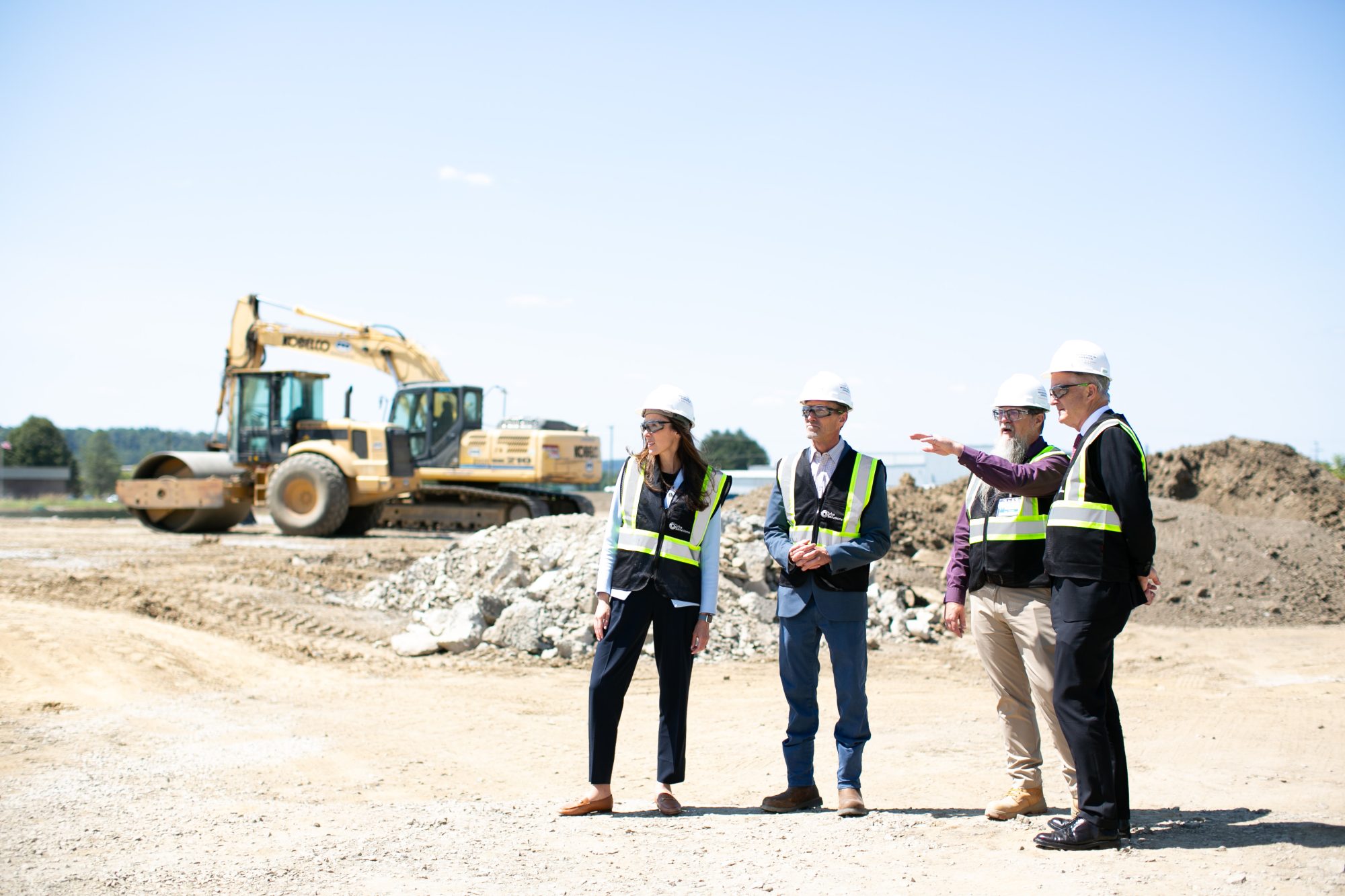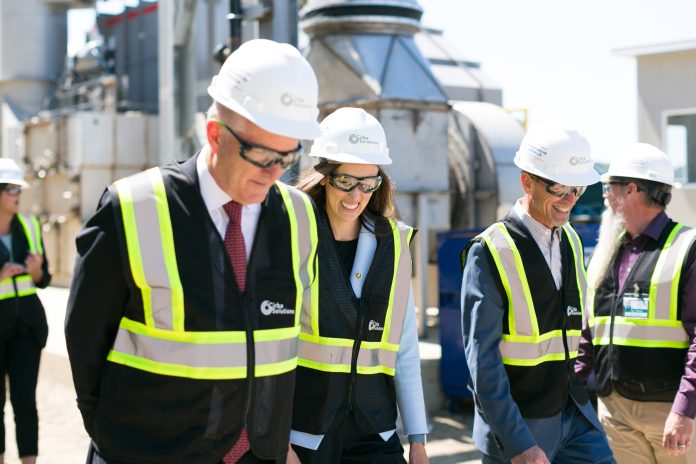Cirba Solutions, a leader in lithium-ion battery recycling and materials management, is making significant strides in establishing a domestic supply chain for electric vehicle (EV) batteries.
Recently, the company welcomed David Crane, Under Secretary for Infrastructure at the U.S. Department of Energy (DOE), and Giulia Siccardo, Director of the DOE Office of Manufacturing and Energy Supply Chains (MESC), to tour its expanding lithium-ion battery recycling facility in Lancaster, Ohio.
A Strategic Milestone for Cirba Solutions
The Lancaster facility is a focal point in the DOE’s strategy to build a robust domestic battery manufacturing value chain, increase American competitiveness, and create high-quality jobs.
Cirba Solutions is investing over $400m in this lithium-ion battery recycling project, with production expected to be operational by 2026.
Once completed, the facility will produce enough battery-grade metal salts to power more than 250,000 EV batteries annually and will create over 100 new jobs in the region.
“Across the nation, more and more communities are experiencing the benefits of an American manufacturing renaissance thanks to President Biden’s Investing in America agenda.
“With Cirba Solutions’ first project from the Bipartisan Infrastructure Law coming online, Lancaster, Ohio, becomes a strategic focal point in DOE’s efforts to build domestic battery manufacturing value chain, increase American competitiveness, strengthen US supply chains, and create good-paying, high-quality jobs for the Buckeye state.
“I’m proud of the partnership we have created with Cirba Solutions as we reach this extraordinary milestone, and I look forward to our continued collaboration to build a future for Ohioans and all Americans that has never been brighter or cleaner,” said Crane.
Government and private sector collaboration in lithium-ion battery recycling
The expansion in Lancaster has been partially funded by a $75m grant from the DOE’s MESC program, a key component of the Bipartisan Infrastructure Law.
This collaboration between the government and the private sector underscores the importance of a domestic circular battery supply chain in advancing America’s energy independence and security through lithium-ion battery recycling.

Siccardo highlighted the significance of this partnership: “This is a testament of how a government-enabled and private-sector led approach can enable the future of vehicle manufacturing.
“Cirba Solutions is demonstrating how a strategic commitment to a circular, domestic battery supply chain can move the US forward, create incredible economic opportunity, and strengthen our energy security.”
Towards a circular economy with lithium-ion battery recycling
The visit by Under Secretary Crane and Director Siccardo came nearly a year after Secretary of Energy Jennifer Granholm attended the facility’s groundbreaking event.
The ongoing construction marks significant progress towards Cirba Solutions’ goal of creating a circular battery supply chain, which aims to reduce costs and increase the efficiency of lithium-ion battery recycling and processing.
David Klanecky, CEO and President of Cirba Solutions, emphasised the company’s achievements: “Being the first company to officially receive funding through the Bipartisan Infrastructure Law and being able to showcase the immense achievements we have made towards a more stable domestic supply chain is something we do not take lightly.
“Increasing the supply of critical materials sourced in the U.S. is crucial to our national security, our pursuit of reducing carbon emissions and our goals around building a closed-loop supply chain.
“The support from the DOE has made it possible for us to expand our operations and operational footprint for the growing battery industry in the US, which has never been seen before in North America.”
Rising demand for critical materials
As the demand for critical materials like lithium, nickel, and cobalt continues to grow, the importance of domestic processing and recycling becomes more apparent.
The lithium supply is projected to grow at a compound annual growth rate (CAGR) of 15% through 2033, while the demand for nickel and cobalt is expected to double between 2023 and 2034. By 2040, 29% of cobalt demand is anticipated to be met by recycled materials.
These market trends underscore the necessity of increasing the supply of critical materials through domestic recycling.
Cirba Solutions’ expansion in Lancaster plays a vital role in this effort, contributing to the creation of a sustainable, closed-loop battery supply chain in the US through efficient lithium-ion battery recycling.
As Cirba Solutions continues its expansion, the company is poised to play a pivotal role in the future of EV battery production and recycling, as well as the broader goal of achieving energy sustainability in the United States through advanced lithium-ion battery recycling techniques.









